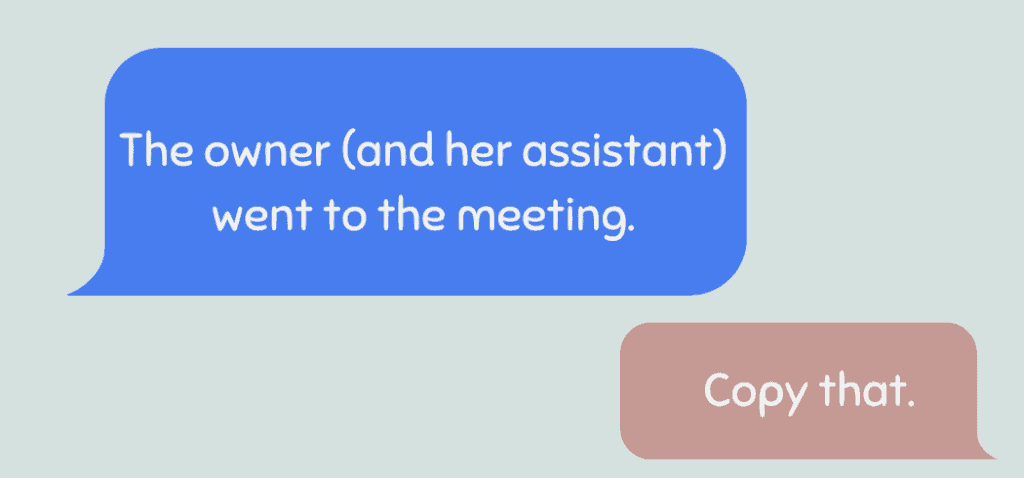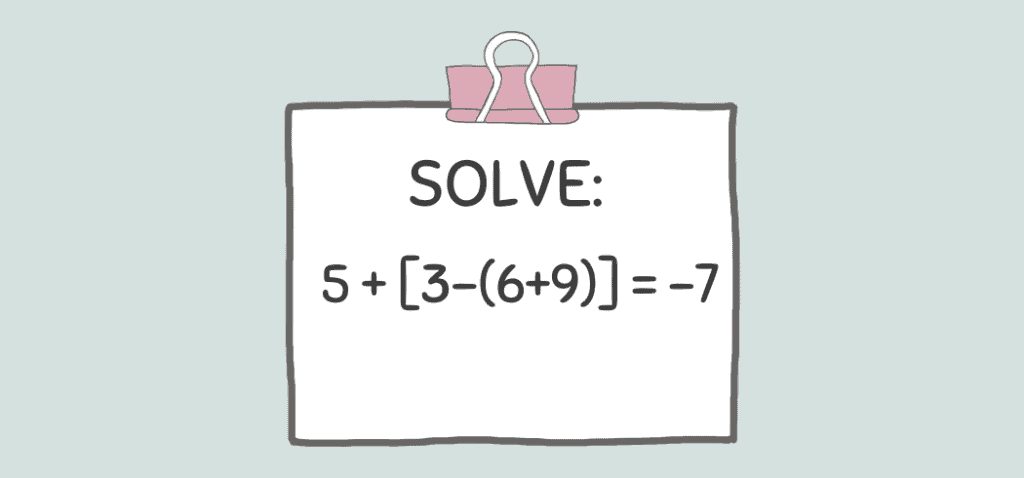Both parentheses and brackets separate a piece of text from the sentence to insert comments or non-essential information. But how do these two punctuation marks differ?
This guide will show you the differences between parentheses and brackets. We’ll also look into their functions and how to use them in sentences.
Are Parentheses and Brackets the Same Thing?
Parentheses (()) and brackets ([]) are both punctuation marks but not the same thing. Both symbols fall under the category of brackets but have different purposes.
Parentheses are a type of bracket that is more commonly used than others. We can use it to insert additional information into the sentence without entirely changing its meaning.
Example:
- My favorite lipstick shade (which is always sold out) will be back in stock on Tuesday.
Brackets or square brackets are tall punctuation marks that add words within quotation marks. They indicate that the material is not part of the original material or direct quotation.
Example:
- “[Going to European countries] has always been my dream,” Harry added.
One similarity between parentheses and brackets is their presence in mathematical material. They also always come in pairs. Your sentence should include both an opening and a closing bracket or parenthesis.
The two other types of brackets are curly brackets ({}) and angle brackets or slant brackets (<>). These two punctuation marks are more common in mathematics, computing, and other disciplines but have little use in formal writing.
The Difference Between () and []
These tips will teach you the difference between parentheses and brackets.
Use Parentheses for Supplemental Information
Words in parentheses usually add information to the actual sentence. This parenthetical material is not grammatically integral to the entire sentence. They also do not fully affect its meaning.

Examples:
- The owner (and her assistant) went to the meeting.
- The school I attended (St. Cecilia School) offers certification programs.
Many writers commit punctuation mistakes when the parenthetical material is at the end of the sentence. Remember that there should be no period within parentheses. But if the enclosed sentence in parentheses forms a question, you can add a question mark.
Examples:
- Emily’s brother (he never replied to my message) was at the dinner party.
- The ghost (have you seen one?) was walking around the building.
Use Parentheses When Including Afterthought
This type of punctuation mark can also be used when including digression or afterthought. Again, the parenthetical material should not affect the grammatical structure of sentences. Treat parentheses as dividers for secondary or unnecessary thoughts.
Example:
- The adult blamed the woman’s clothing (which was decent, by the way) for his disrespectful behavior.
Again, the material in parentheses ends with the parenthesis. It should not have a full stop despite being a complete sentence in itself.
Use Parentheses for Introducing Items in Outlines or Lists
Another difference between brackets and parentheses is that parentheses enclose numbers for a list of independent elements. The numbers within the sets of parentheses come before each element.
Example:
- The statement is false because (a) knowledge is socially constructed; (b) humans do not learn merely based on rewards and punishments; (c) this concept is associated with cultural prejudices.
Use Parentheses for In-Text Citation
APA sixth edition and other citation styles recommend using in-text citations for references. Writers need to include the last name of the author they’re citing and the year of publication.
Examples:
- (Lock, 2008)
- (Hart, 1994)
You’ll also find parentheses in a reference list entry.
Example:
- Reid, T. J. (2017). The seven husbands of Evelyn Hugo: a novel. First Atria books hardcover edition. New York: Atria Books.
Use Parentheses for Time Zones and Area Codes
Make sure to use parentheses instead of brackets when enclosing time zones and area codes.
Examples:
- 8:30 PM (EST)
- (212) 588-9854
Use Brackets Inside Parentheses
A more complex material sometimes requires an enclosure within an enclosure. This is where box-type brackets come to the rescue.
Example:
- I gave Taylor a necklace (I also gave him three shoes [stilettos, sneakers, and loafers]), and she liked it.
Notice how the sentence says “it” instead of “them” because it only refers to the item outside the parentheses.
Do not use parentheses within parentheses, also known as nested parentheses. Instead, place the words in brackets to keep your writing readable.
As with parentheses, punctuation in brackets depends on the content within them. You can use question marks for complete sentences, but you shouldn’t use a period or comma.
It’s also advisable not to use brackets within parentheses if you can separate the information using commas without confounding meaning.
Example:
- Incorrect: (As Mari [1989] stated)
- Correct: (As Mari, 1989, stated)
Use Brackets for Quotations
Like single quotation marks, brackets are found within quoted materials. We use them to add information to the quotation to explain or comment.
Example:
- According to Steven, “Ron gave [his ex-wife] Kat a nod.”
Use Brackets When Citing Sources
Entries in bibliographies may also include brackets after the title element.
Example:
- Wilder, B. (Director). (1959). Some like it hot [Film]. Ashton Productions; The Mirisch Corporation.
How to Know When to Use Brackets vs. Parentheses
Here are some guide questions to follow when understanding the difference between parentheses and brackets in your writing.
Is The Material Inside a Pair of Quotation Marks?
If you are adding extra information to a quoted material, use brackets. But if there are no quotation marks, use a pair of parentheses.
Is the Material Inside a Pair of Parentheses?
If you are putting the punctuation marks inside a pair of parenthesis, you should use brackets.
What is the Difference Between () and [] in Domain and Range?
The placement of brackets and parentheses in mathematical expressions is the opposite. The parentheses are always inside the brackets. One should also solve the numbers within parentheses before those in the brackets.

Example:
- 5 + [3-(6+9)] = -7
Summary of Brackets vs. Parentheses
Both parentheses and brackets enclose and separate material from the central message of the sentence. I hope this post gave you guidance on the difference between brackets vs. parentheses. Remember:
- Words in parentheses add supplemental information to the main text.
- Words in brackets add information to the parenthetical material.
